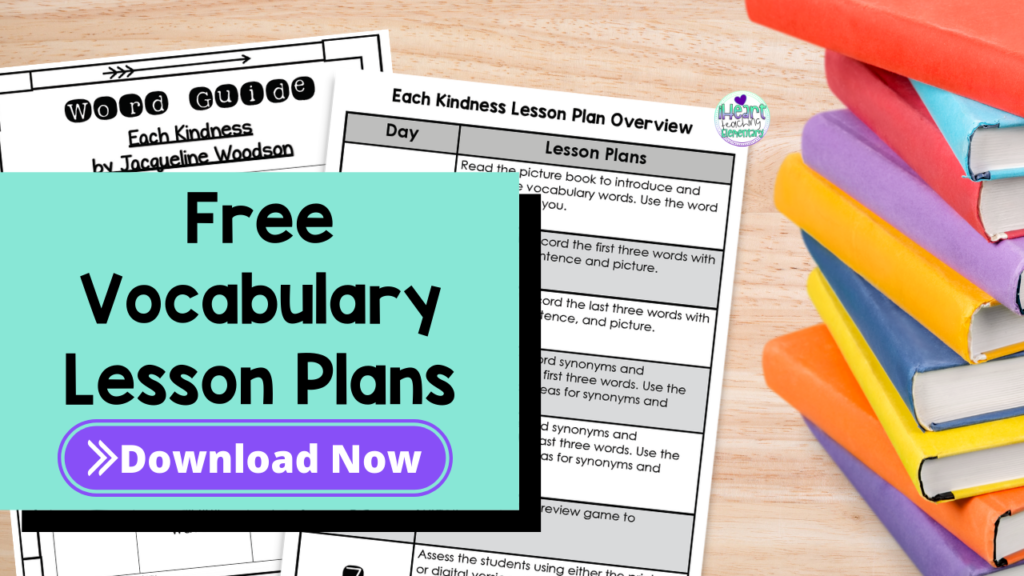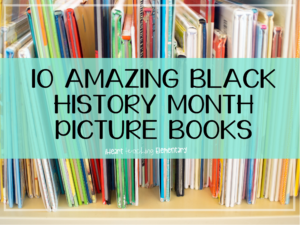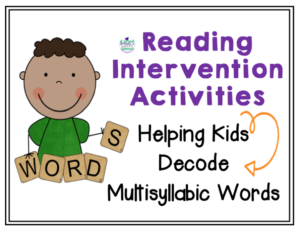You need to teach reader’s and writer’s workshop but don’t have enough time to read a book and teach a lesson. So now the writing lesson will have to be done tomorrow which backs up the rest of your lessons.
What if I told you there’s a way to do this more efficiently? You don’t have to keep rescheduling your lessons because you run out of time.
Although I know in reality, that still happens. That’s just teacher life. But you won’t have to reschedule them as often because you’ll have more time to fit it all in.
Plan for a lot of Back to School Read Alouds
Reading a lot of picture books in the first couple of weeks of school is a great way to prepare for readers and writers workshop.
In the first weeks of school, there is more time to read picture books. You haven’t started your content yet. You’ll find that there are many times throughout the first couple of weeks you can take a break and read to your class.
So many great picture books cover a ton of reading and writing skills. Reading a lot of them in the first weeks of school will help mini-lessons go quicker when you launch workshop.
An important thing for kids to do is to listen and engage with a story just for fun the first time they hear it. Without a skill being attached. If you choose back to school books with great lessons, they can also help build classroom community.
In the first weeks of school I like to add a ton of back to school read alouds to my lesson plans. I choose books that have great messages like inclusion, teamwork and character building.
I will later use parts of those same books to teach a mini-lesson that covers a certain skill or standard.
So one of the most important things you can do to prepare for an efficient reader’s and writer’s workshop is to make sure you choose books that cover many skills or standards.
When I teach a mini-lesson, I can refer back to a book and say, “Remember when we read…” Then I can teach the standard or skill I’ve chosen for that book and do a quick lesson that doesn’t take more than 10 minutes.
I’ll go over an example of a reading and writing mini-lesson later so stay tuned!
Back to School Picture Books That Covers Many Standards
Here are 5 of my favorite back to school picture books that covers lots of standards and skills:

The Energy Bus
The Energy Bus is a long book but can be broken up into a couple of days. The message of the story is about how to deal with people that try to put you down or “get on your bus” with negative energy.
This book can help create an atmosphere in your classroom filled with positive energy. The author gives great tips for kids and adults throughout the book and provides practical steps.

The Name Jar
The Name Jar is about a little girl who is ashamed of her name when she starts a new school. I love this book for the first week of school because it’s important for kids to respect each other when it comes to names.

The Invisible Boy
In the story, The Invisible Boy, there is a new boy that feels left out and not welcomed at his school. The illustrations add to this story which is an important skill for kids to have. This story also makes for great conversation in the classroom.
Ralph Writes a Story
Ralph Writes a Story is a favorite for writers workshop. In the story, Ralph doesn’t know what to write and has no idea how all of his classmates have found things to write about.
The story is funny so your writers will be engaged. And it’s a great way to help kids come up with ideas for writing.
Each Kindness
The lesson learned in Each Kindness is an important one for kids to discuss in the first weeks of school. What’s unique about this story is that although there is no happy ending, the narrator learns how one act of kindness or lack thereof can have a ripple effect on someone’s life.
Save time in Reader’s and Writer’s Workshop
Choosing books that cover a lot of skills and standards will save you so much time. You won’t have to spend your precious time searching for a book for each standard.
You’ll be able to refer back to different parts of the books when you teach reader’s and writer’s workshop.
Reading Mini-Lesson
Lets go through what a reading mini-lesson might look like using one of the back to school picture books.
I’m going to use the book Each Kindness to show how you can teach the standard about how a character changes throughout a story.

Since we already read the book at the beginning of the year, I’d first ask the kids to recall the story.
Then I would ask how the narrator felt about Maya (the new girl) at the beginning of the story. I’d also ask what evidence there is that supports this.

It depends on your class, but you might review some of the plot at the beginning of the story to help your class remember.
I would have partners discuss for about a minute and then we’d discuss it as a whole class:
In the story, Maya is introduced to the class and sits next to the narrator and smiles at her. The narrator doesn’t return the smile. From this action we can tell that the narrator does not like Maya and doesn’t make her feel welcomed.
Next I’d ask how the narrator felt about Maya at the end of the story and have partners discuss. If I feel like it’s needed, I would discuss some of the plot at the end of the story or point out a particular page. Then we’d discuss as a whole class:
The narrator regrets not being kind to Maya. We know this because in the story it says her throat fills with all the things she wished she would have said to Maya. Each kindness she had never shown.

This reading mini-lesson should only take about 10 minutes. What’s even better is that you can use this same book for other standards throughout the first quarter or even later in the year.
Writing Mini-Lesson
Now lets go through what a writing mini-lesson might look like using one of the back to school picture books.
For this lesson I’m going to use Ralph Writes a Story because I love it so much. It’s the first book I read before launching writers workshop.

In the story, Ralph has a hard time finding something to write about. But he discovers that a lot has happened throughout his day and he can write a story about each event.
I start by asking the kids to recall the plot of Ralph Writes a Story. Then I tell the kids that just like Ralph, there are things they can write about.
Next, I give them 5 minutes to make a list of all the things they did or saw in the last few days or even a week. After 5 minutes, I let kids share out if they would like.
This is a great strategy because it often gives the rest of the class more ideas to add to their list.
That’s the writing mini-lesson. Super simple and short but effective.
The next step is independent practice. The kids will choose an item from their list and write a story about it.
Whenever they get stuck throughout the year, they can choose from their list. I also encourage them to add to their list throughout the year as they experience life.
Did those example lessons help you see how you could have an efficient reader’s and writer’s workshop? Now you’ll have more time for other lessons. Like vocabulary!
The same books you use for reader’s and writer’s workshop can be used for vocabulary. If you need help fitting vocabulary into your daily lesson plans, here’s a post that might help.




